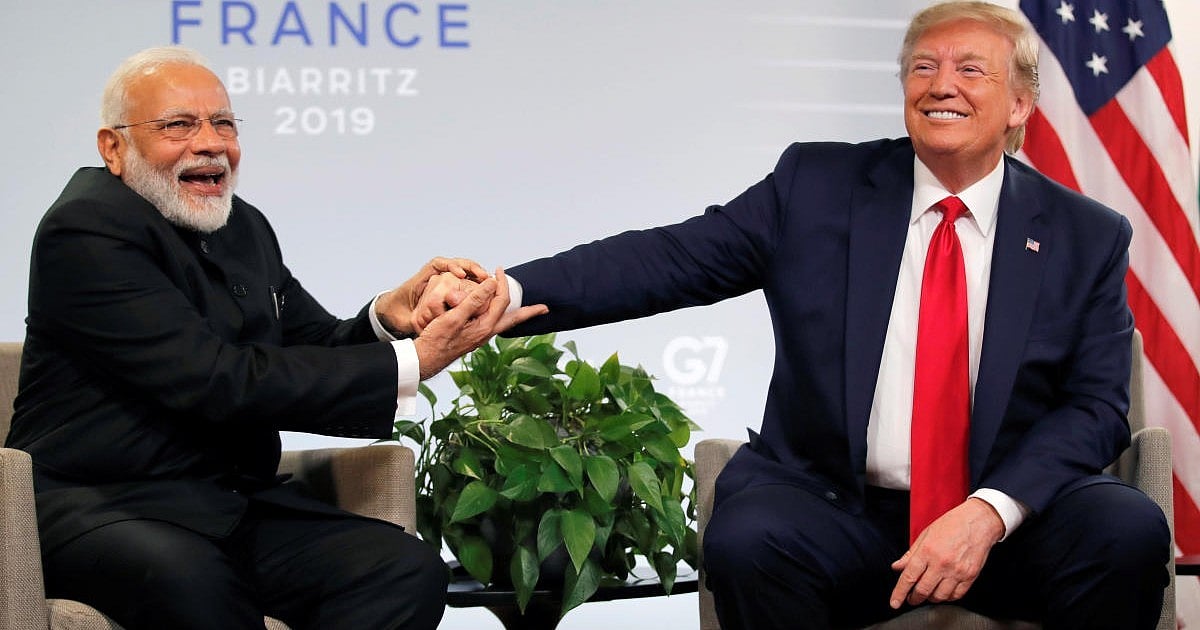 |
|
The recent announcement of sweeping tariff reductions by the Modi government in India signals a strategic maneuver to appease the Trump administration and avert a potentially damaging trade war. This move, unveiled on Saturday, represents a significant shift in India's trade policy, involving substantial cuts to import duties across a wide spectrum of goods, ranging from textiles and apparel to motorcycles and other manufactured products. The scale and breadth of these concessions underscore the perceived urgency in mitigating escalating trade tensions with the United States. While the precise details of the tariff overhaul are still being analyzed by economists and trade experts, the immediate impact is expected to be a lowering of import costs for numerous goods entering the Indian market, potentially benefiting consumers and businesses alike. However, concerns remain regarding the potential long-term effects of these sudden and significant reductions on domestic industries, particularly those that might face increased competition from cheaper imports.
The decision to implement such significant tariff cuts can be viewed as a calculated risk by the Modi government. On the one hand, it demonstrably seeks to avoid a costly and disruptive trade war with the US, a major trading partner and geopolitical ally. The potential economic consequences of a full-blown trade conflict – including retaliatory tariffs, reduced export opportunities, and disruptions to global supply chains – would be substantial and could negatively impact India's economic growth trajectory. By preemptively offering these concessions, the Modi government aims to de-escalate tensions and maintain a constructive relationship with the US administration. However, critics argue that these concessions might represent an excessive compromise, potentially undermining the growth of domestic industries and jeopardizing India's longer-term economic interests. The extent to which these concessions will satisfy the US administration and prevent further trade disputes remains to be seen.
The strategic implications of Modi's approach are multifaceted. It underscores the increasing importance of managing bilateral trade relations in the context of broader geopolitical considerations. The relationship between India and the US has evolved into a complex interplay of economic cooperation and strategic partnership, requiring careful navigation of competing interests. This situation is further complicated by the ongoing trade disputes between the US and other major economies, such as China. India's decision to prioritize avoiding a trade conflict with the US reflects a calculated assessment of its immediate economic priorities, while simultaneously attempting to preserve its strategic autonomy in the international arena. The long-term consequences of this strategy, however, remain uncertain. It is crucial to monitor the response from the US administration, the impact on domestic industries, and the overall effect on India's trade balance and economic growth in the coming months and years. The success of this strategy will depend largely on whether it effectively prevents a full-scale trade war and creates a more sustainable and mutually beneficial trade relationship with the United States.
Further analysis is required to fully understand the long-term ramifications of this policy shift. The potential for unintended consequences, such as job losses in affected domestic industries or increased reliance on foreign imports, necessitates careful monitoring and potentially compensatory measures. The government's commitment to supporting domestic industries and mitigating any negative repercussions from these tariff cuts will be a critical factor in determining the overall success of this strategy. Moreover, the effectiveness of these concessions in achieving a long-term resolution to trade tensions with the US is still uncertain. Further negotiations and diplomatic efforts may be necessary to establish a more stable and predictable trade relationship between the two countries. Ultimately, the impact of Modi's strategy will be judged by its ability to balance the need for immediate economic stability with the long-term goals of fostering robust and sustainable economic growth within India.
The episode highlights the complex dynamics of international trade relations in the current global environment. It underscores the significance of proactive diplomacy and strategic decision-making in mitigating trade disputes and protecting national economic interests. The specific details of the tariff reductions and their ultimate impact on India's economy and its relationship with the US will continue to be closely watched by economists, policymakers, and the business community worldwide. The long-term consequences will depend on a range of factors, including the response of the US government, the resilience of Indian industries, and the ability of the Modi administration to effectively manage the economic and social implications of this significant policy shift.
Source: Modi's Trump strategy sees quick concessions to avoid trade war
